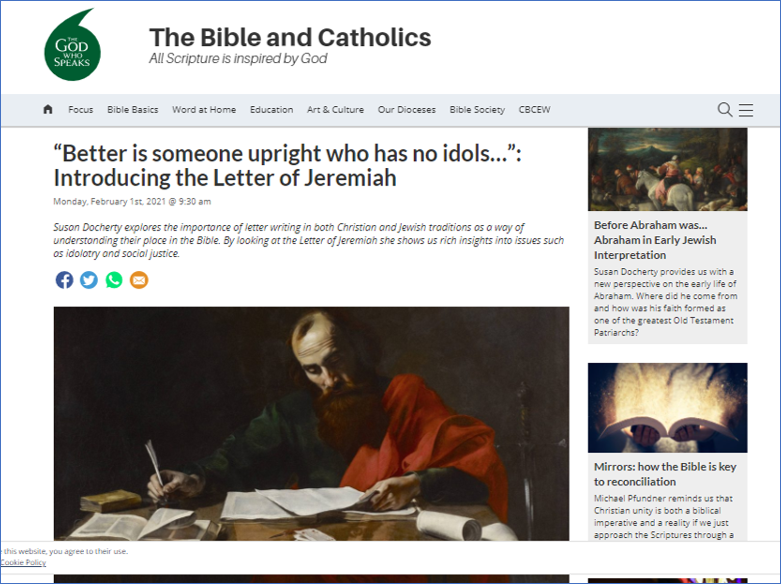The second of Professor Susan Docherty’s short articles for the God who Speaks campaign.
In this article, Sue explores the importance of letter writing in both Christian and Jewish traditions and identifies precedents for the New Testament letter writers within the Hebrew Bible/Old Testament.
The main focus of her exploration is the Letter of Jeremiah (sometimes titled ‘Letter of Jeremy’) which can be found at the end of Baruch (chapter 6) in the Deuterocanon/Apocrypha.
Sue argues that:
The Letter of Jeremiah offers a particularly close parallel to the New Testament epistles… It has been somewhat neglected within the churches and by scholars, yet it speaks to issues which continue to exercise believers today. It also illustrates the creativity with which ancient Jewish interpreters re-used and adapted their sacred scriptures.
Docherty (2021)
You can read Sue’s article in full by clicking the links below.










